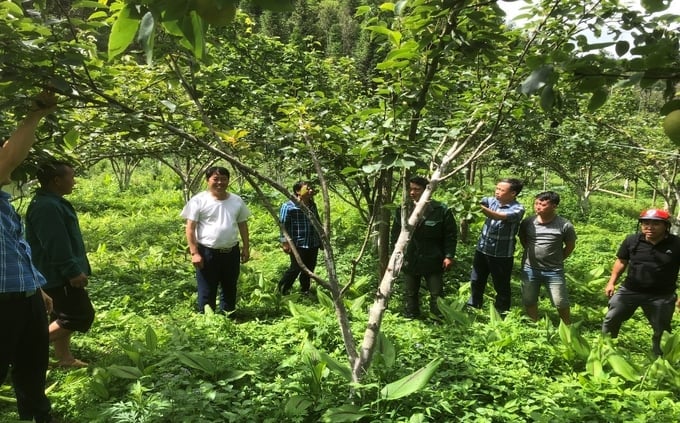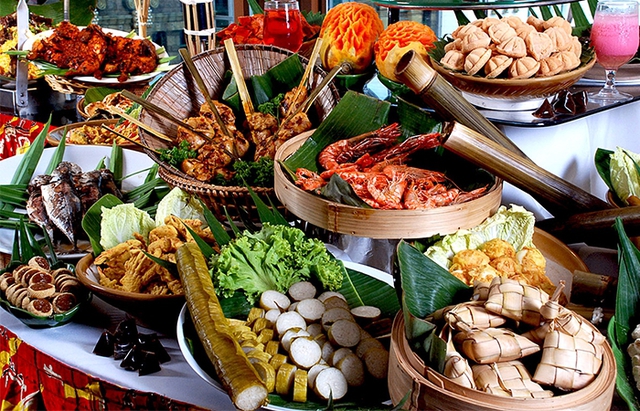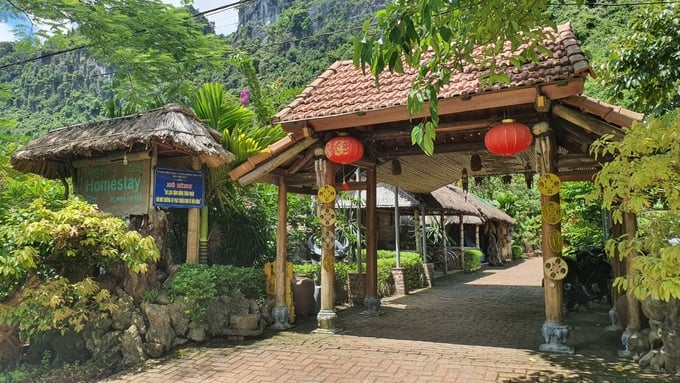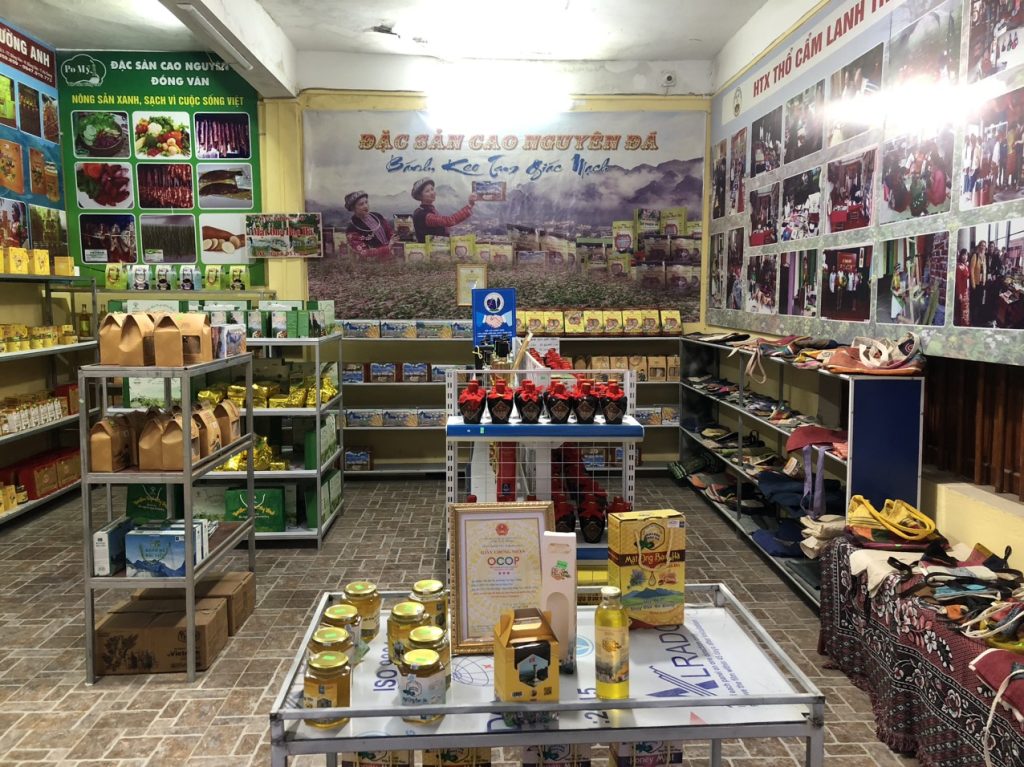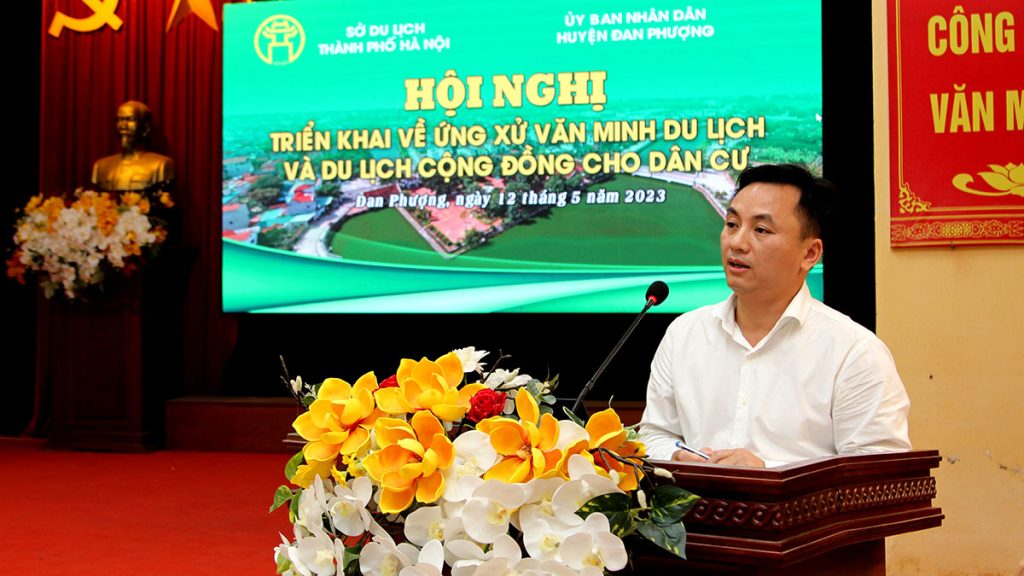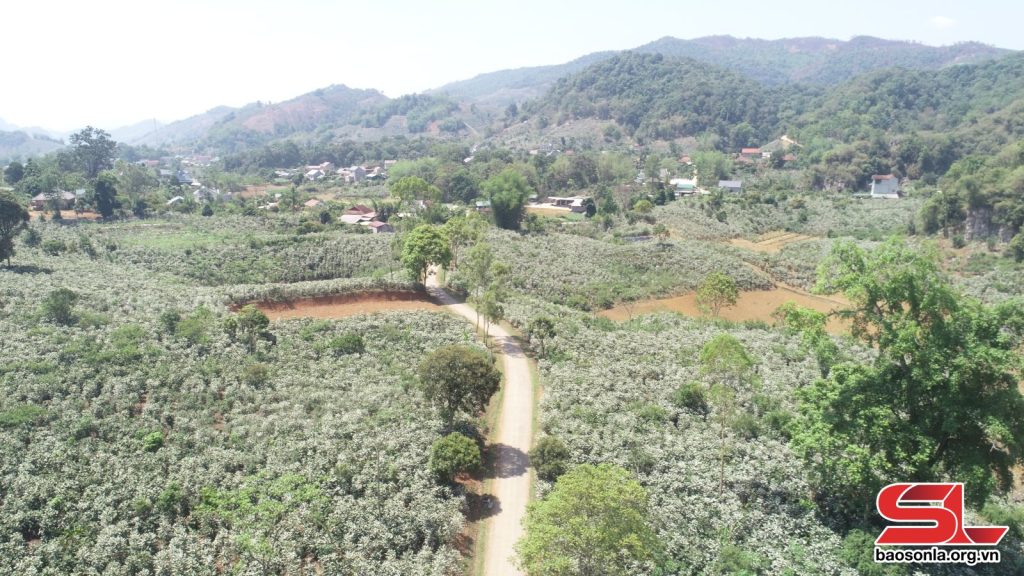Lao Cai province possesses favorable natural conditions for the development of temperate fruit trees including Ta Van plums, Northern plums, tam hoa plums, VH6 pears, etc. The implementation of the temperate fruit tree intensive farming model in association with the development of ecotourism in Ta Van Chu commune, Bac Ha district, Lao Cai province not only meets local demand but also opens up a new direction for the local agricultural sector, thereby contributing to ecological preservation and enhancing income for the local residents.
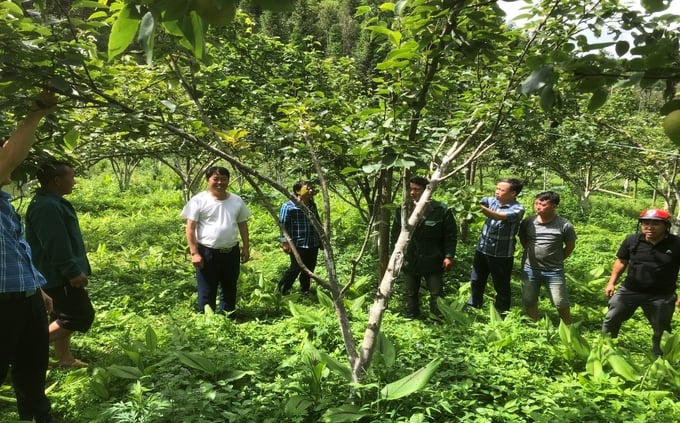
Officers from the Lao Cai province’s Agricultural Extension and Agricultural Service Center providing guidance to farmers on pruning and fruit bagging. Photo: Luu Hoa
Pioneering a new path for agriculture
Temperate fruit trees, particularly VH6 pears, are the key strengths in the highland districts of Lao Cai province. Districts within the province consistently prioritize allocating resources and investment to improve productivity and income for temperate fruit trees farmers. VH6 pears, known for their distinctive taste and fragrance, are popular among consumers. Additionally, VH6 pear varieties typically ripen early, providing a market advantage and significant income for the local population.
However, the current yield and income from VH6 pear production across various regions such as Bac Ha, Sa Pa, etc., are unable to match the local potential and climate advantages. This limitation can be attributed to the scattered planting of VH6 pear trees, the fragmented topography, and inadequate infrastructure. Furthermore, the level of local investments in intensive farming is restricted, and many households follow traditional farming methods which feature minimal fertilizer application, a lack of pruning and shaping, passive pest control, and notably, the absence of fruit bagging, resulting in poor visual appeal and fruit quality. Additionally, local fruit tree farms lack the appeal to attract tourists for sightseeing and experiential visits.
In response to these challenges, in 2023, Lao Cai province’s Agricultural Extension and Agricultural Service Center collaborated with the Bac Ha District People’s Committee to implement the intensive farming model for temperate fruit trees in association with ecotourism development in Ta Van Chu commune, Bac Ha district, on an area of 3 hectares, involving 12 participating households.
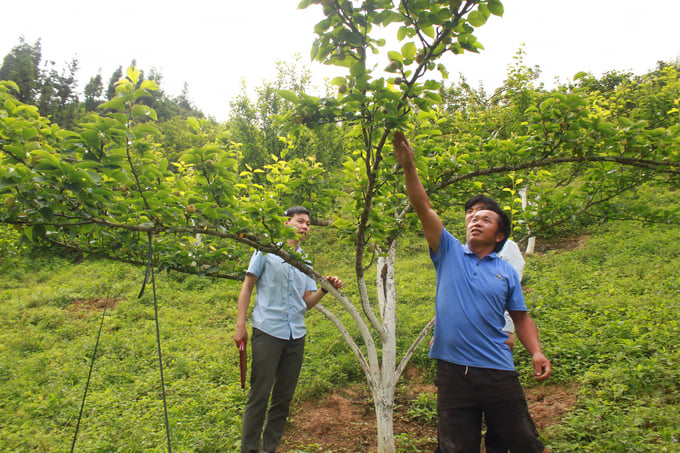
The extensive application of a comprehensive technical process for intensive temperate fruit tree farming helps increase value and income for local residents. Photo: TL
Participating households in the model receive support in the form of agricultural supplies, including organic fertilizers, nitrogen, potassium, biological plant protection products, and fruit covering bags. Farmers also undergo training and guidance on the technical process of temperate fruit tree intensive farming. To date, the local Agricultural Extension and Agricultural Service Center has collaborated with Ta Van Chu Commune People’s Committee to organize one technical training course and distribute various support materials to ensure the quality and timeliness of production.
The initial implementation of the model has contributed to raising impoverished farmers’ awareness regarding the necessity of adapting production methods to new market demands. It also addresses existing issues which can lead to low fruit quality and opens up new production methods suitable for the knowledge and habits of highland farmers, providing stable income with fewer risks and less impact from market fluctuations. On the other hand, the use of materials such as organic fertilizers and biological plant protection products helps protect farmers’ health and prevent environmental pollution.
Linking production with market demand
The majority of temperate fruit tree farming models in association with ecotourism in Lao Cai province are established in a spontaneous manner and lack regional planning for systematic development. Consequently, there is a need for investment in infrastructure and special services to ensure sustainable development.
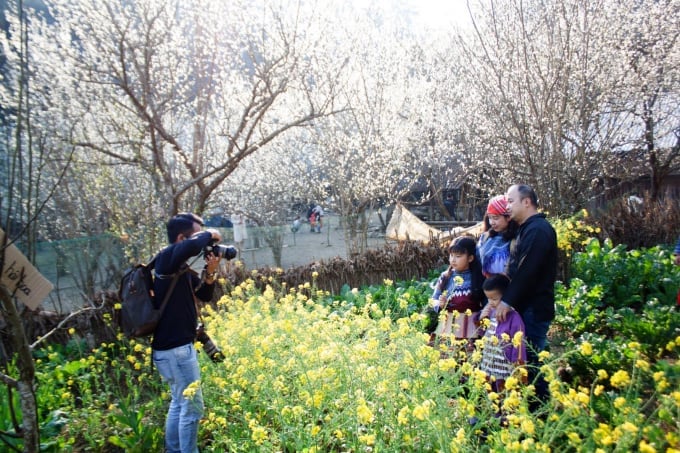
Ta Van Chu commune possesses significant potential for temperate fruit tree farming in association with tourism development
With the aim of expanding the production scale of high-quality temperate fruit trees in association with eco-tourism, Lao Cai province’s Agricultural Extension and Agricultural Service Center will continue to collaborate with the Ta Van Chu Commune People’s Committee and specialized agencies within Bac Ha district to provide guidance to households participating in the model. This guidance will focus on the nurturing process and the prevention of pests and diseases on VH6 pear trees, in accordance with technical standards. Moreover, local residents will receive guidance on creating landscapes in combination with tourism development for high efficiency, thereby opening up new directions for the local agricultural sector.
At the local level, it is important to encourage tourism businesses to develop tours and routes to exploit agritourism products. Additionally, farmers should be encouraged to renovate and upgrade infrastructure to support tourism, preserve environmental landscapes, and adopte a friendly and welcoming attitude to tourists during their visits to the region.
Translated by Nguyen Hai Long – https://vietnamagriculture.nongnghiep.vn/

